by Mike Telin
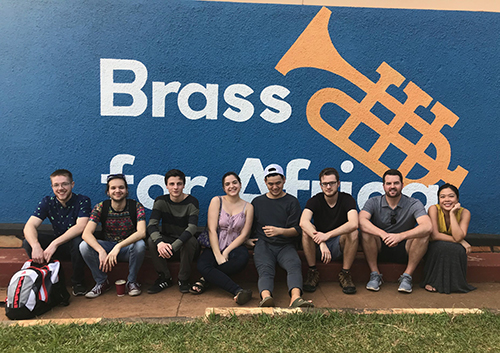
Trombone professor Lee Allen and six of his Oberlin Conservatory students spent two weeks in Kampala last January immersing themselves in Brass for Africa programs. “It was a very interesting and humbling cultural experience for myself and for the students,” Allen said during a telephone conversation. On Sunday, May 6 at 4:30 pm at the Church of the Covenant in Cleveland’s University Circle, the Oberlin Trombone Choir under Allen’s direction will present a benefit concert for Brass for Africa. Donations, which will be used to purchase and transport used brass instruments to BFA outreach centers, may be made in cash at the door or online.
Allen said that he first became aware of BFA via his friend and fellow trombonist Taylor Hughey. “The last thing I knew she was teaching in China, but when I looked on her Facebook page, I saw that she had been living in Africa. We talked on the phone and she told me about Brass for Africa.”
At first, Allen was skeptical of BFA’s work — was it white privilege imposing its agenda? — but as he learned more about the organization’s organic, holistic approach to providing life skills training to young people from orphanages, street projects and rehabilitation centers, he thought that spending time volunteering would make a meaningful Winter Term project for students.
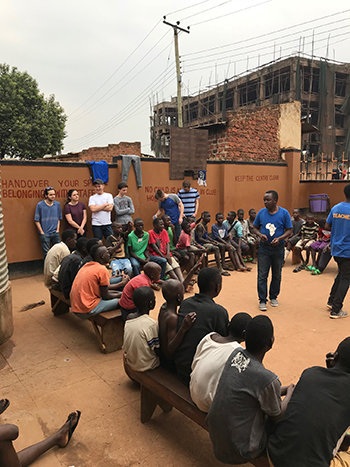
In addition to music instruction, BFA also provides classes in life skills, teacher training, and instrument repair. Allen explained that a key part of the organization’s model is providing employment for former students. “The teachers are trained by hired faculty, then they go to the outreach facilities and teach the kids. They’re given health insurance and a salary.”
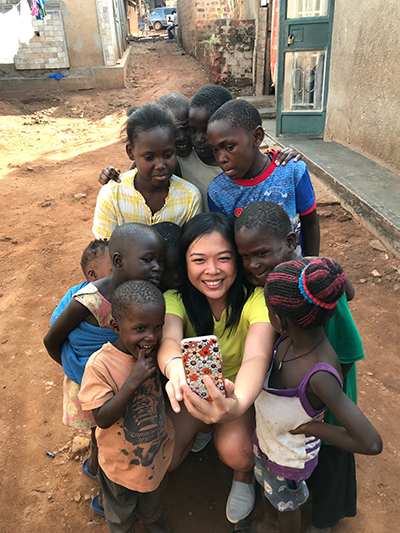
It was during that visit that Sims said he realized how BFA operates. “It was jolting and quite emotional. BFA is not your typical humanitarian organization — it’s not like the Peace Corps, or a missionary project. Twice a week the teachers bring the instruments to the outreach centers and teach music and life skills. What’s amazing is that the teachers all grew up in these places. They are the realization of the effect that BFA has had in the region.”
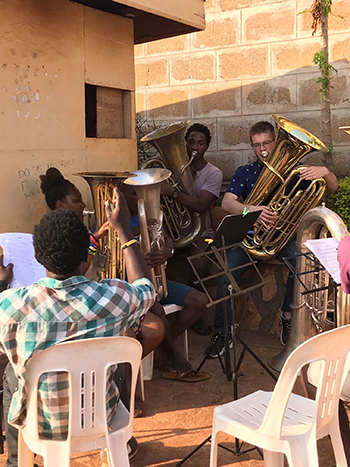
How did the experience change Sims? “It rocked my world, and I’m still trying to digest it all,” he said. “Part of the reason I wanted to go on the trip is because I have decided that I want to teach. Although we were just playing concerts and working with the teachers, that experience confirmed my aspirations. I now want to do something with life skills and teaching for a larger cause. BFA gave me a new perspective about how something as simple as teaching and playing music can make such a difference in situations where people are stuck.”
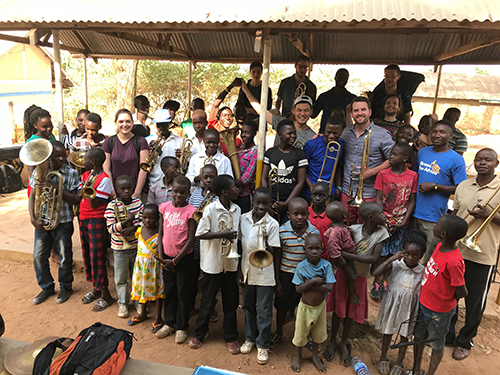
On the May 6th concert at the Covenant, the Oberlin Trombone Choir will be presenting music to celebrate Brass for Africa. “It’s also a way to introduce the trombone choir to an audience that might not have heard that homogenous sound,” Allen said. “I hope people will come and have a good time. Justin and I will talk about the trip and we’ll also have a lot of photos — those are worth thousands of words.”
Published on ClevelandClassical.com April 27, 2018.
Click here for a printable copy of this article


